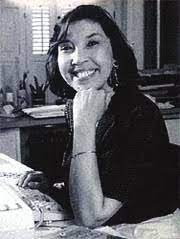Week 6 Syllabus: November 27-December 1
WRITING IS A FORM OF THINKING. You simply must write while you read. It helps you formulate questions that you have about what you’ve read. It helps clarify confusion you might have about passages you don’t understand. It helps you make connections and see patters that you might otherwise miss. It helps you synthesize information, developing new ideas about what you’ve read. It also helps serves as a rough sketch for the writing assignments you’ll inevitably get from your teacher about what you’ve read. In short: annotations help you think. We will practice this important skill this week.
Tuesday, November 28
Independent reading.
We will practice our annotation technique, re-reading one (or both) of the following short stories: “Raymond’s Run” and/or “The Adventure of an Indian Princess.”
Besides circling vocabulary and writing questions, students will look for examples of Campbell’s hero journey (or monomyth) in each work, adding to the annotations that are already there.
HW: For those who didn’t do so, read chapters one and two. All others, read chapter two of Haroun.
Wednesday, November 15
Period 6 will attend the preview of the freshmen/sophomore play, meeting in Cornog Auditorium.
Period 8 will begin with:
Independent reading.
Watching the following documentary about Campbell, the hero journey, and the film The Wizard of Oz.
HW: Watch the following documentary. Those who watched in class don’t have homework!
Friday, December 1
Independent reading.
Review of plot points in chapters one, two and three. What are the key passages that illustrate: a) the characters and their relationships, b) the setting of the story’s action, and c) the key conflicts happening between the characters?
Reading chapter four aloud, together. Haroun and Iff cross the threshold into the Land of Stories, and the hero journey begins.
HW: As you continue to read, pay attention to the trials that Haroun endures. Who are his helpers, and how to they help prepare the hero for the final battle? Where does Haroun encounter doubts or challenges to achieving his goal? Where does Haroun hear sage (wise) advice, and is he able to enact his/her/their recommendations?
This weekend, finish reading chapter four and read chapter five on your own. There will likely be a reading quiz on Tuesday!



